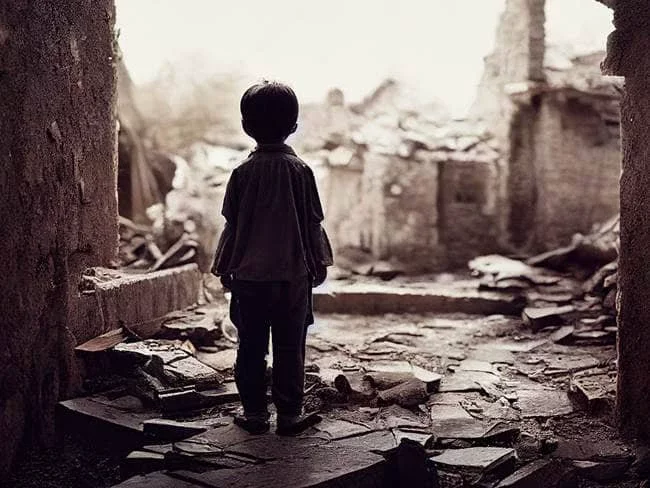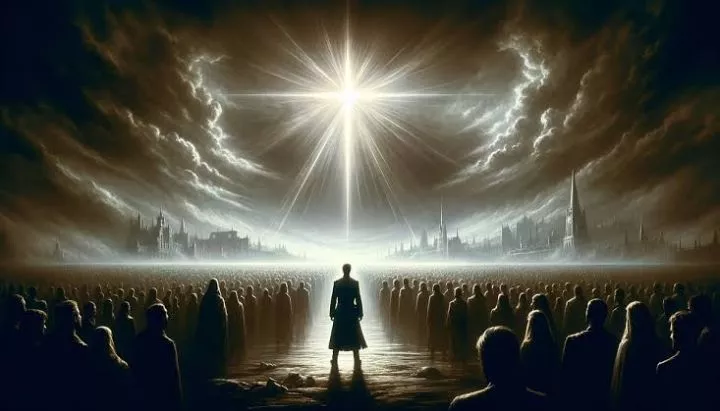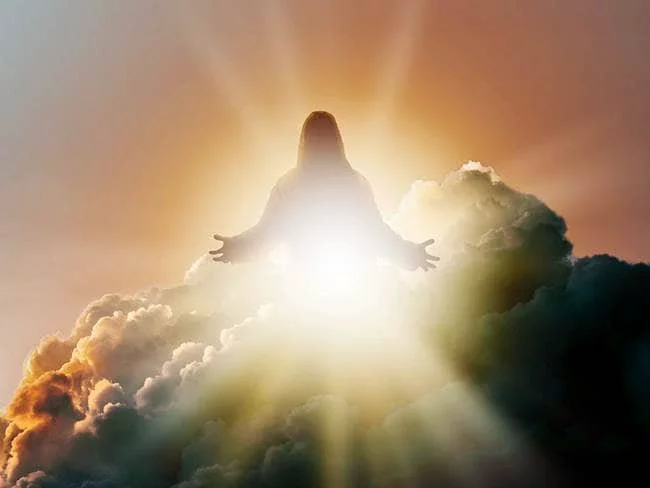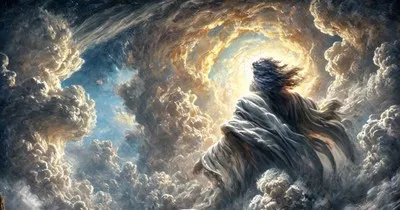Though humanity suffers in the present, those who have faith in Christ will experience the ultimate redemption. It is hope for a world with no suffering that helps humanity endure the present.

The question, "Why does God allow suffering?" has been asked throughout the centuries. The force of the question arises from God's very nature. After all, how can an all-loving, all-good, and all-powerful God allow evil and suffering?
There are two common responses to this question.
First, there is the assertion that human suffering results from humanity's misuse of freedom. Suffering, in other words, is humanity's fault. God allows suffering because He honors humanity's freedom.
Second, it is noted that God will restore His creation so that there will be no more suffering (Revelation 21:4).
Consequently, though humanity suffers in the present, those who have faith in Christ will experience the ultimate redemption. It is hope for a world with no suffering that helps humanity endure the present.
Is This Explanation Enough?
Although these claims are valid, one wonders if they are completely sufficient. What if the answer is not so simple? After all, do these answers account for why some suffer more than others? And what if these responses undermine the biblical story?
One of the potential dangers of too overly simplistic an approach to human suffering is that it may undermine the Christian call to compassion. After all, the conviction that human suffering derives simply from the misuse of freedom, though true, may create a sense of callousness concerning the suffering of others.
For example, one might look down upon the homeless person since surely their plight is the result of poor choices. Others might be dismissive of the massive death toll in wars, because this is what happens when the people elect bad leaders.
The question arises as to where the biblical call to "Weep with those who weep" (Romans 12:15) comes in?
In addition, an answer that is too simplistic may fail to account for the totality of suffering.
For, how does this explanation account for the 25,000 people who die every day from hunger? Or the person who was born with a disability? Or the child that died at, before, or shortly after birth.
The Role of Sin and God's Nature
Sure, all persons are indeed sinners and worthy of death ("For the wages of sin is death"; Romans 6:23), and the effect of human sin is that people die from starvation. But is there more?
Furthermore, there is a concern that such an approach may undermine God's nature, the biblical story, and the call of God's people.
Jesus and Suffering
The Gospel of John relays the account of Jesus' raising Lazarus from the dead (John 11:1-46). Lazarus' sisters send word to Jesus that he is sick. From the beginning of the story, Jesus appears to have known that He would raise Lazarus. He even informs His disciples, "This sickness is not to end in death" (John 11:4).
By the time Jesus arrived in Bethany, the home of Mary, Martha, and Lazarus, Lazarus had already died. Nonetheless, Jesus assures Martha that her brother "will rise again" (John 11:23).
Yet even though Jesus knows what He is about to do when He arrives at Lazarus' tomb, He weeps (John 11:35).
Why Did Jesus Weep?
Why does Jesus weep?
He knew that He was about to raise Lazarus. He even prayed, "Father, I thank You that You have heard Me. I knew that You always hear Me; but because of the people standing around I said it, so that they may believe that You sent Me" (John 11:41-42).
Could it be that Jesus wept because death was not supposed to be a part of this creation?
Could it be that God grieves at the suffering in this world? Could it be that there is more to the violence and suffering in the world?
The Nature of Violence and Suffering
What if those in power have weaponized violence and suffering for their own gain? But what if war is humanity's way of ruling? If this is so, then there may very well be a disproportionate amount of suffering among the poor and the marginalized.
The biblical story relays that God desires peace, unity, and justice for all. This is not simply something the people of God are to await. It is something that God desires for His people to begin working towards in the present.
Creation and the Role of Violence
Notice that in Genesis, God creates by speaking, "And God said" (Genesis 1:3, 6, 9, 11, 14, 20, 24, 26, 29).
This stands in marked contrast to other Ancient Near Eastern (ANE) creation accounts. In other ANE accounts, order was established through violence.
For example, in the Babylonian account of the Enuma Elish, the Babylonian god Marduk establishes order by slaying the great dragon goddess Tiamat (his mother). Marduk then cuts her in half to create the heavens and the earth.
God's Kingdom vs. The Kingdoms of the World
In Genesis, however, God doesn't use violence. After all, He has no enemy that must be defeated. God creates by speaking. Then He declares, "It was good" (Genesis 1:10).
Violence, in other words, is the way the world operates. Certainly, there is truth that human suffering is the result of sin and the fallen world in which humanity dwells. And there is the hope that God will bring about His new creation in which sin, suffering, and death will be no more.
In the present, however, there must also be the realization that God's kingdom stands radically opposed to the kingdoms of the world. Much of the suffering in this world derives from the abuse of power and violence. And because of this abuse of power, suffering is often disproportionately experienced by the poor and the marginalized.
God's People Called to Act
God's people, then, are called not to be resigned to the presence of suffering and violence but to live in accord with God's kingdom in which love manifests itself in suffering violence (think of Jesus on the cross) so that violence and death can be overcome.
Suffering is not only not the way it is supposed to be, it grieves God. Violence and suffering are what Christ came to destroy.
The biblical story then accounts for the presence of evil and suffering. Humanity chose to rule based on its own wisdom instead of seeking wisdom from God, resulting in conflict. Disunity enters the story: Adam and Eve realize they are naked because they are no longer one. Family strife enters the story: Cain murders his brother. Violence ensues.
But what if instead of resigning oneself to conclude that "this is just the way it is," the people of God are called to be the agents of bringing about the solution?
Following Jesus' Example
Imagine Jesus on the cross. Do you suspect that as He hung there, He resigned Himself to the fact that not all would believe in Him, and they would have to suffer the consequences of their sins? Or did He have both contentment and grief? Content that some would believe and grief that others did not?
The difference between these two ways of looking at the world is massive. One creates a sense of apathy and potentially callousness.
The other encourages us to "weep with those who weep" (Romans 12:15) and work towards the restoration that will come only fully when Christ returns.

















Comments